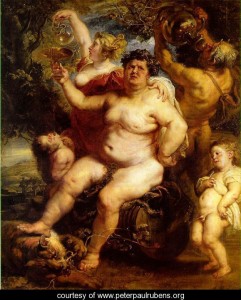This is why you’re fat
The Congress of Scholars invites Smithsonian colleagues to attend the second talk in its spring lecture series, “The Evolution of Obesity,” on Thursday, March 10. Animal Scientist Michael Power of the National Zoo and Jay Schulkin, director of the Research Department, American College of Obstetricians and Gynecologists, will speak at 4:00 p.m. in the National Museum of African Art’s lecture hall.
Throughout history there have been obese human beings. In the past obesity was rare and represented highly unusual metabolic or cultural circumstances. Today there is a mismatch between our evolved biology and our modern circumstances, and obesity has become common. Most modern human obesity is not due to metabolic or behavioral abnormalities. Humans have purposefully constructed a benign environment, removing many of the challenges our ancestors evolved to solve. Minimal exertion is required; food is not a constraint. We remain highly motivated by certain foods; but we no longer have to exert in order to eat them. Formerly successful adaptations may now be counterproductive, at least in terms of weight gain.
This talk will explore the mismatch hypothesis and its role in the modern obesity epidemic, focusing on both metabolic factors and neural circuits involved in appetite. Recent data on the development of obesity in captive common marmosets (small New World monkeys) will be presented in order to suggest that there are instructive analogies between the modern human environment and the captive environments we construct for animals in our care.
Upcoming:
Debra Diamond of the Freer and Sackler Galleries will present “Case Studies in the Visual Culture of Yoga” on April 14.
Posted: 3 March 2011
-
Categories:
Education, Access & Outreach , News & Announcements , Science and Nature









